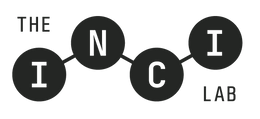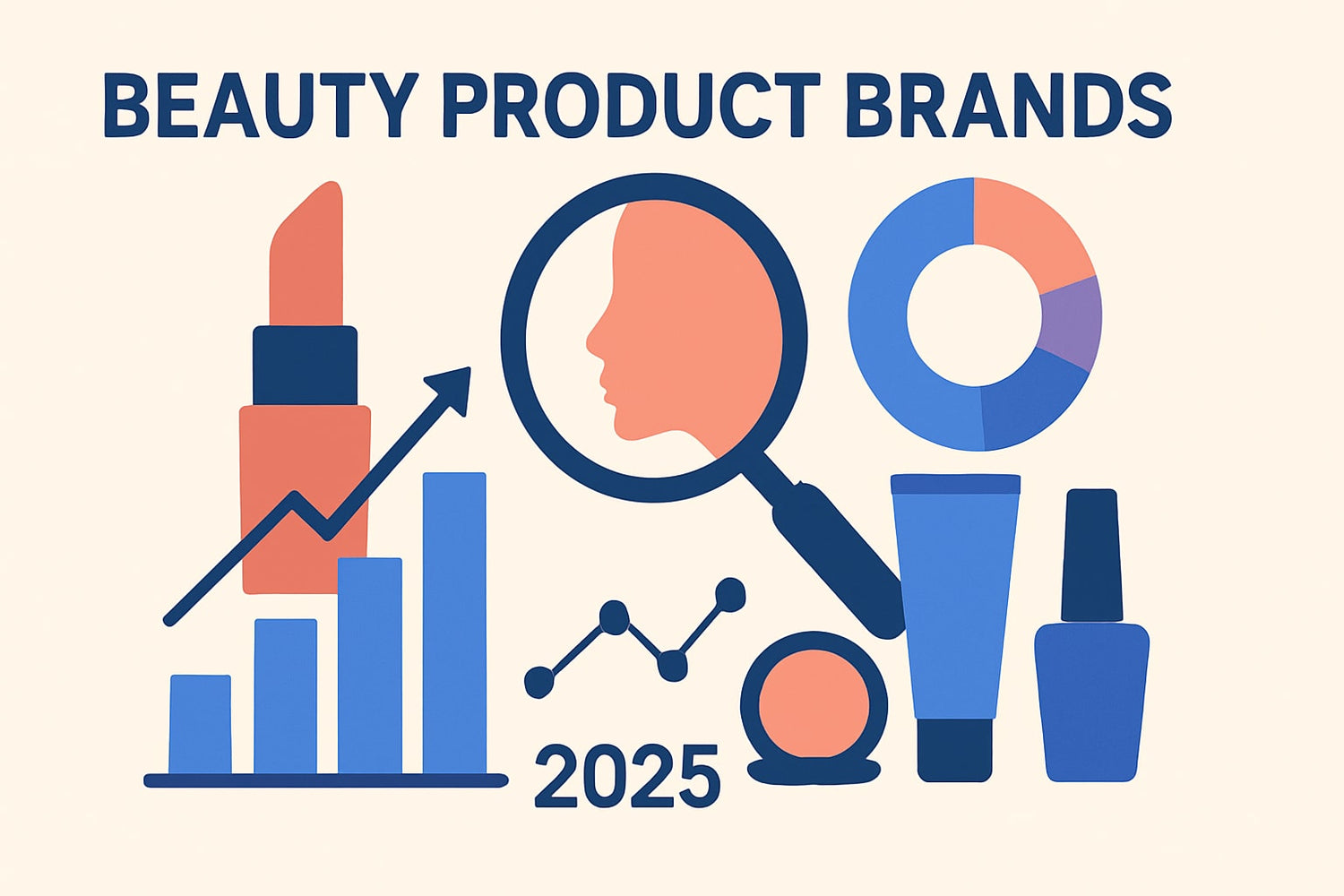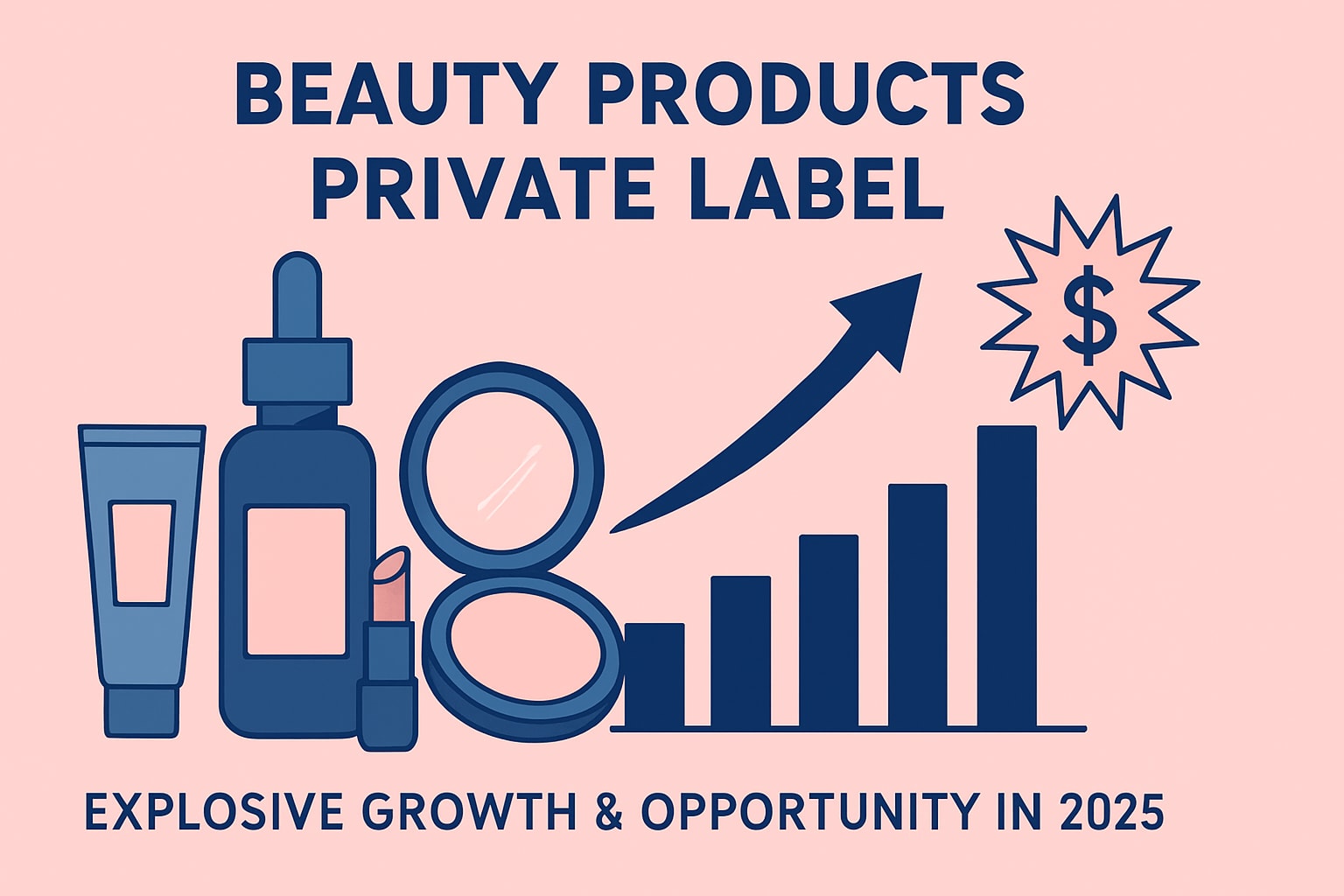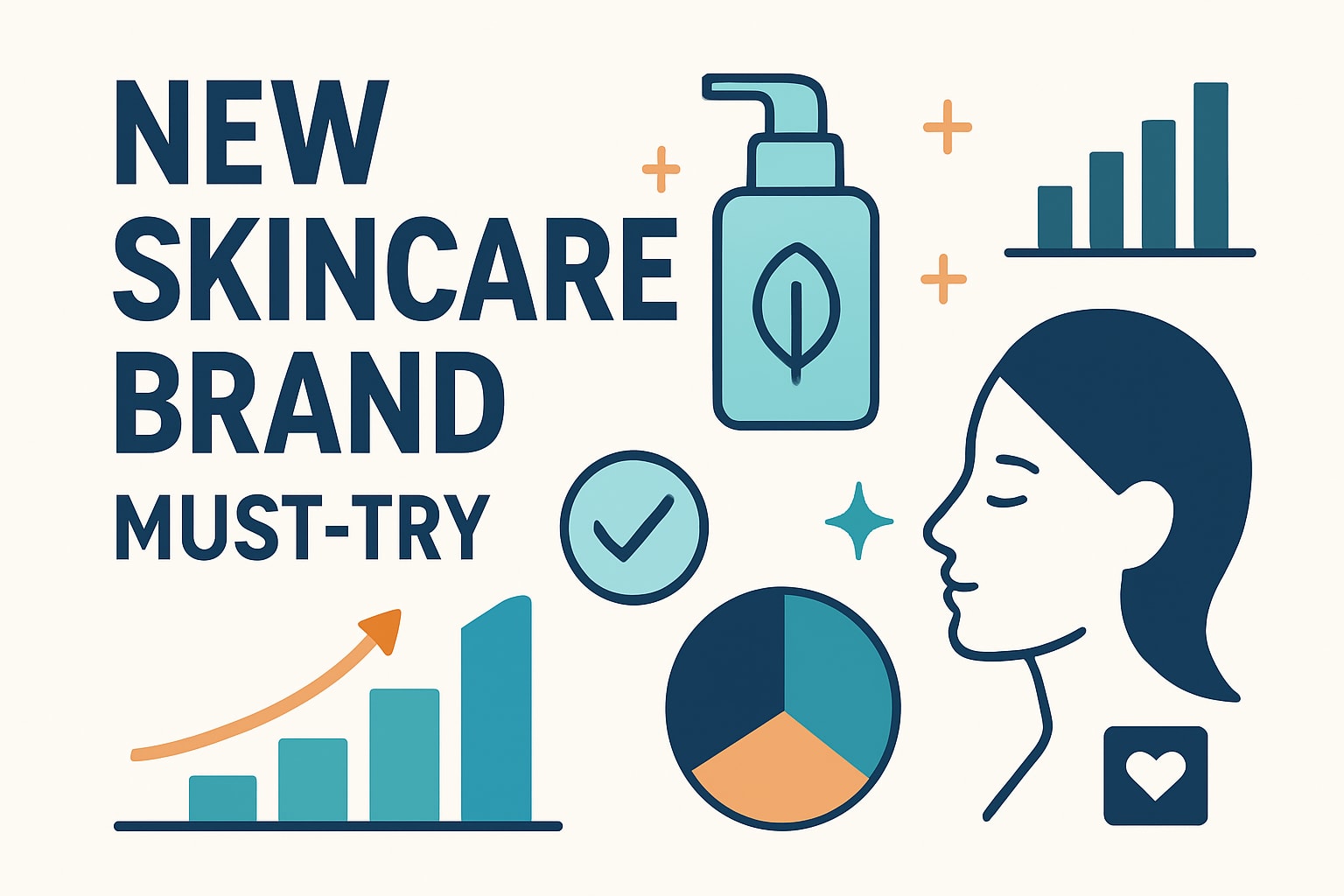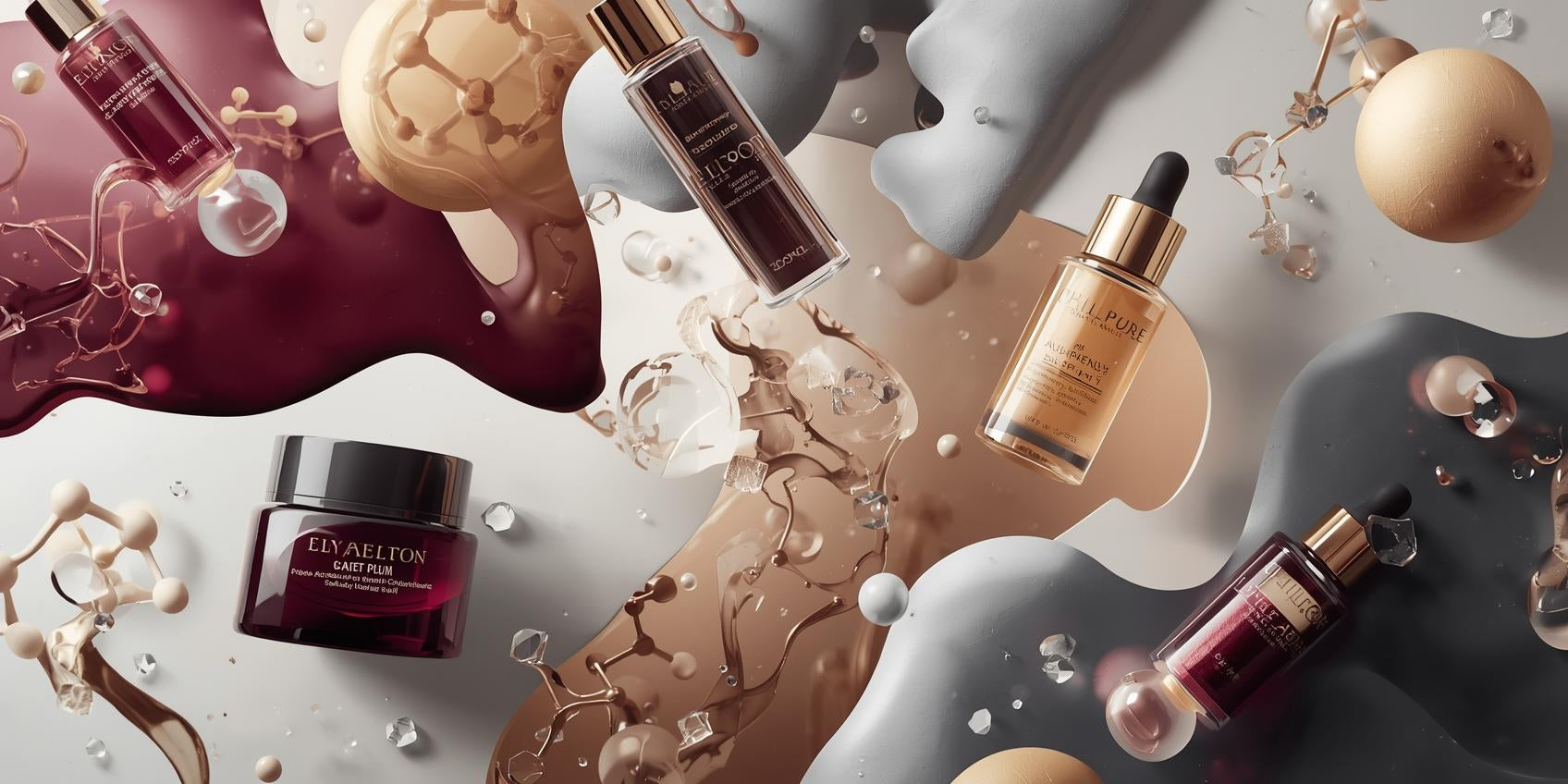The world of beauty is evolving at an unprecedented pace, with 2025 ushering in a wave of innovative beauty products brands that are reshaping the industry. Modern consumers are seeking more than just effective results—they want products that align with their personal style, support skin health, and reflect values like sustainability and transparency.
Choosing the right beauty products brands is crucial for achieving your unique goals, whether you prioritize cutting-edge formulations or ethical practices. In this guide, you will discover nine standout brands that deliver on performance, responsibility, and individuality.
Get ready to explore the essential beauty products brands of 2025, each offering something distinctive for today’s beauty enthusiasts.
The Shifting Landscape of Beauty Brands in 2025
The world of beauty products brands is transforming at a record pace. In 2025, industry leaders and emerging players alike are adapting to consumer demands for sustainability, inclusivity, and advanced technology. As shoppers become more informed, the values behind beauty products brands matter as much as the formulas themselves.
Sustainability and Clean Beauty: A New Standard
Sustainability has become a defining feature for beauty products brands. Refillable packaging, biodegradable materials, and eco-friendly formulas are now expected. Many brands have committed to cruelty-free certifications and sourcing ingredients with minimal environmental impact.
According to a recent Statista survey, 67% of consumers now prefer beauty products brands that prioritize transparent sourcing and ethical practices. Clean beauty is not just a trend, it is a new industry standard. Brands are moving away from harmful additives, embracing plant-based actives, and reducing their carbon footprints.
For a deeper look at these shifts, see the 2025 global beauty trends shaping the industry.
Technology’s Role in Beauty Product Innovation
Biotechnology and advanced ingredients are revolutionizing the performance of beauty products brands. Lab-grown actives, micro-encapsulation, and AI-powered product development are enhancing both efficacy and safety.
Consumers are seeking products tailored to their unique needs, and technology delivers personalized solutions. Brands using biotech can craft high-performing, sustainable formulas that stand out in a crowded market.
The emphasis on science-backed innovation is reshaping the way beauty products brands approach product development, making efficacy and transparency central pillars.
Inclusivity and Diversity: Expanding the Market
Inclusivity is no longer optional for beauty products brands. Companies are expanding their shade ranges, developing products for diverse skin tones, and creating lines that welcome all genders and ages.
This shift reflects a broader understanding of beauty’s diversity. From foundation shades to skincare, brands are ensuring everyone finds their match. Inclusivity in marketing and product formulation builds trust and loyalty among a wider audience.
The Influence of Social Media and Authenticity
Social media platforms and beauty influencers are powerful forces in shaping consumer perceptions of beauty products brands. Viral trends, honest reviews, and direct engagement create a dynamic landscape for brand discovery.
Authenticity has emerged as the cornerstone of loyalty. Brands that communicate openly about their sourcing, formulations, and values foster deeper connections. Transparent communication and real results keep consumers coming back.
Key Trends and Brand Responses
| Trend | Brand Response Example |
|---|---|
| Sustainability | Refillable packaging, cruelty-free certifications |
| Technology | Biotech ingredients, AI-powered product development |
| Inclusivity | Expanded shade ranges, gender-neutral products |
| Transparency | Ingredient lists, traceable sourcing |
| Social Media | Influencer partnerships, viral marketing campaigns |
Beauty products brands that embrace these trends are setting the pace for the industry. In 2025, authenticity and innovation are not just buzzwords, they are essential to success and sustained consumer trust.
9 Essential Beauty Products Brands to Try in 2025
The beauty industry in 2025 is thriving with innovation, inclusivity, and a strong focus on sustainability. To help you navigate the expanding world of beauty products brands, we have curated a list of nine stand-out names that are setting new standards in performance and ethics. This guide provides a deep dive into each brand's philosophy, unique strengths, and why they deserve a spot in your routine.
Explore these beauty products brands and discover which ones align best with your personal style, skin needs, and values. For a broader perspective on the market's leading players, you can also check out this Top cosmetic brands overview.
The INCI Lab
The INCI Lab is redefining what it means to be a leader among beauty products brands in 2025. This innovative company offers custom-quoted pricing, tailoring each formulation to the specific needs of clients. There are no fixed prices, as every product is uniquely crafted.
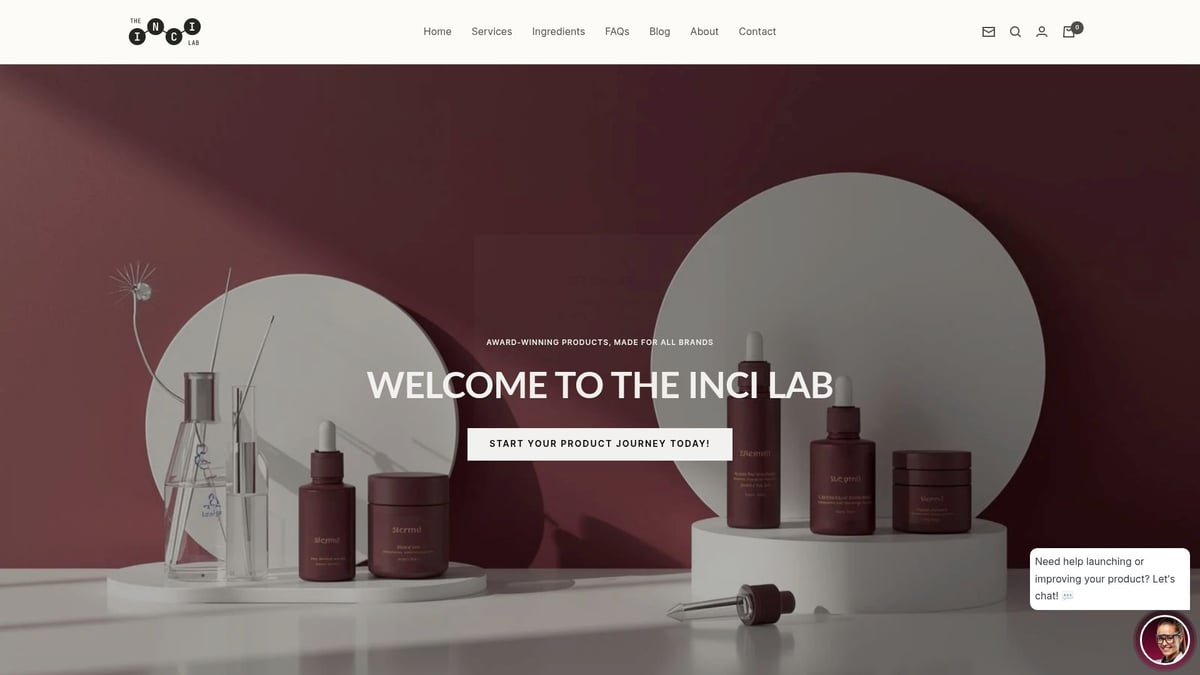
Core features of The INCI Lab include award-winning custom formulations, eco-friendly ingredient sourcing, and complete intellectual property ownership for clients. The brand empowers both startups and established businesses by providing end-to-end support, from ideation to regulatory compliance.
What sets The INCI Lab apart from other beauty products brands is its science-backed and sustainable approach. The company is led by a renowned formulation expert, ensuring every product meets high standards for efficacy and safety. Whether launching a new beauty line, reformulating legacy products, or creating a natural skincare range, clients benefit from personalized service and a deep commitment to sustainability.
Ideal for:
- Entrepreneurs and indie brands seeking innovation
- Established companies prioritizing eco-friendly solutions
- Those who want exclusive formula ownership
Pros:
- Bespoke service
- Sustainability at the core
- Full formula rights
Cons:
- No ready-made products
- Longer development times compared to standard private label options
The INCI Lab is the go-to for those who value uniqueness, sustainability, and control over their beauty products brands.
Drunk Elephant
Drunk Elephant has secured its place among top beauty products brands thanks to its biocompatible, non-toxic formulations and commitment to skin health. The brand’s pricing is mid-to-high range, with serums typically costing $60 to $80.
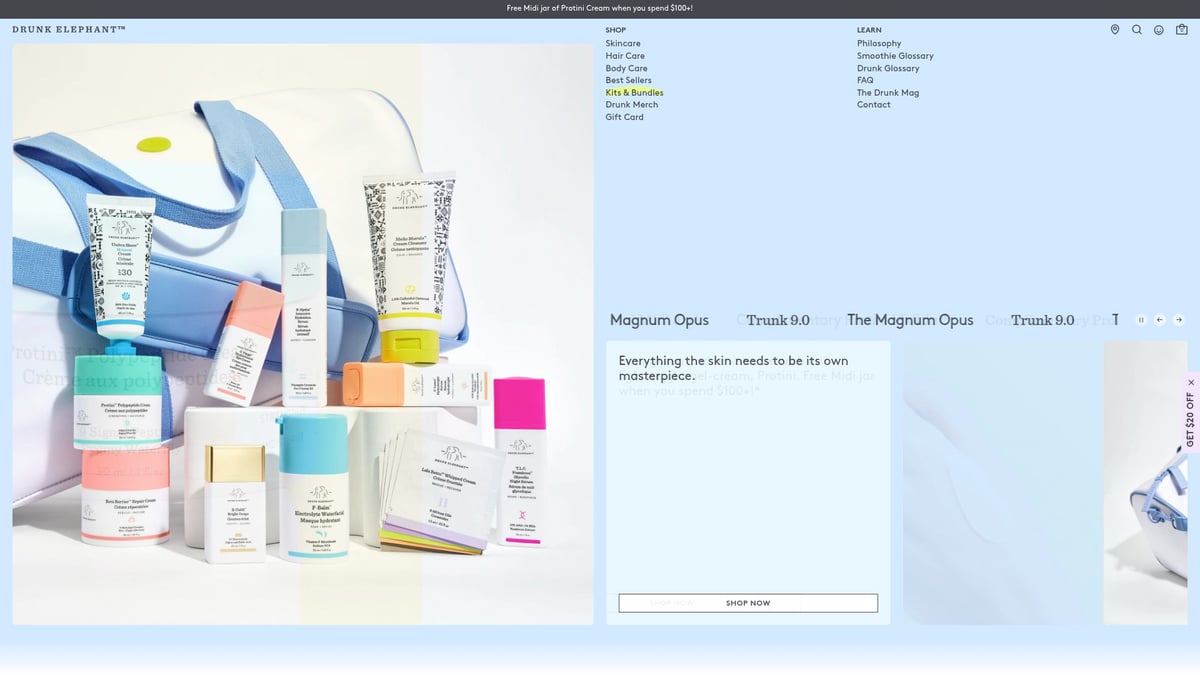
One of Drunk Elephant's standout features is its “suspicious 6” free philosophy, excluding common irritants from all formulas. This approach makes the products especially suitable for sensitive skin types. Minimalist ingredient lists and visible results in texture and tone make Drunk Elephant a favorite among ingredient-savvy shoppers.
The brand’s focus on transparency and education has fostered a loyal community. For those seeking daily skincare routines that address dullness, uneven skin, and early aging, Drunk Elephant offers effective solutions.
Ideal for:
- Health-conscious consumers
- Sensitive skin types
- Ingredient-focused shoppers
Pros:
- Transparent ingredient lists
- Cruelty-free and fragrance-free
Cons:
- Premium pricing
- Limited product range for specific concerns
Drunk Elephant continues to lead beauty products brands in delivering visible results with a clean conscience.
Glow Recipe
Glow Recipe is a standout among beauty products brands for its accessible luxury, playful packaging, and fruit-forward, clean formulations. Most products are priced between $25 and $50, making the brand approachable for a wide audience.
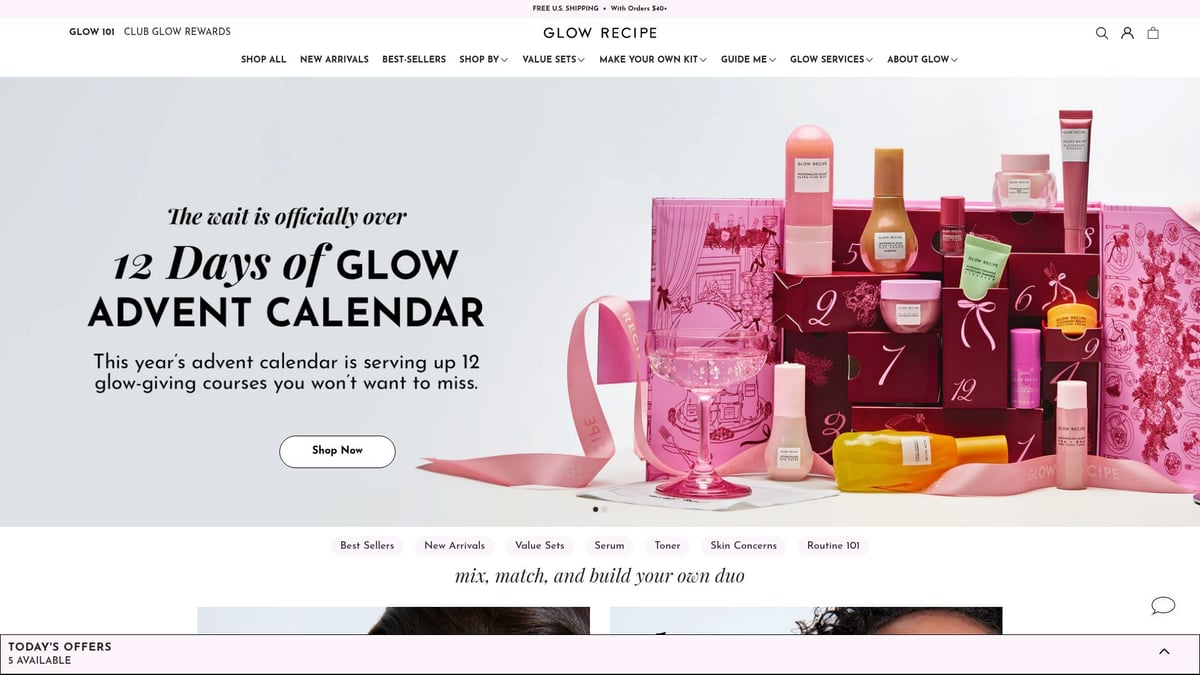
Glow Recipe’s formulations focus on hydration, brightening, and gentle exfoliation, helping users achieve the coveted glow. The brand is particularly popular with Millennials and Gen Z, thanks to its viral social media presence and K-beauty-inspired innovation.
Marketing campaigns highlight inclusivity and fun, while vegan and cruelty-free standards appeal to conscious consumers. For those new to skincare or seeking to layer products for glass skin goals, Glow Recipe is an excellent choice.
Ideal for:
- Trend-driven consumers
- Layering skincare routines
- Achieving dewy, radiant skin
Pros:
- Vegan and cruelty-free
- Inclusive marketing
Cons:
- Some products are heavily fragranced, which may not suit sensitive skin
Glow Recipe exemplifies how beauty products brands can merge efficacy, playfulness, and inclusivity.
Fenty Beauty
Fenty Beauty has revolutionized the market for beauty products brands with its industry-leading shade inclusivity and high-performance pigments. Foundations are priced around $38, with lip products ranging from $20 to $25.
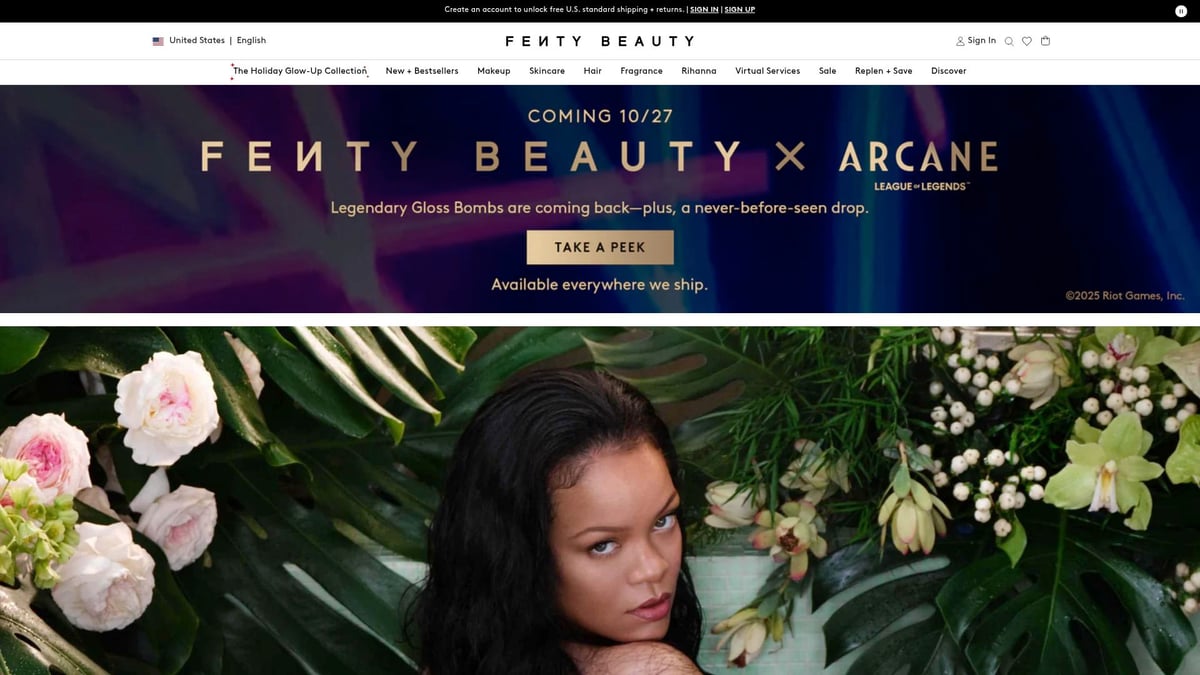
The brand’s core features include an unparalleled spectrum of shades, long-wearing formulas, and products suitable for all skin tones. Fenty Beauty is celebrated for its trendsetting launches, creative versatility, and strong celebrity influence through founder Rihanna.
Ideal for makeup enthusiasts, professionals, and anyone seeking creative or everyday looks, Fenty Beauty stands out among beauty products brands for its versatility and inclusivity.
Ideal for:
- All genders and ethnicities
- Makeup lovers and professionals
Pros:
- Extensive shade range
- Cruelty-free
- Innovative textures
Cons:
- High demand can lead to frequent sell-outs
Fenty Beauty is a benchmark for inclusivity and creativity in beauty products brands.
Youth to the People
Youth to the People is a leader among beauty products brands focused on sustainability, superfood-powered skincare, and vegan formulas. Pricing falls in the mid-range, with cleansers and creams costing $36 to $68.
The brand’s small-batch production and recyclable glass packaging reflect its commitment to eco-consciousness. Products nourish the skin, support barrier health, and are designed for those who prioritize clean ingredients.
Youth to the People appeals to eco-friendly consumers, vegans, and skincare minimalists. Its philanthropic initiatives further set it apart from other beauty products brands.
Ideal for:
- Daily cleansing and hydration
- Barrier repair
Pros:
- B Corp certified
- Clean, sustainable formulations
Cons:
- Limited availability in some regions
Youth to the People proves that beauty products brands can be both effective and environmentally responsible.
Charlotte Tilbury
Charlotte Tilbury is synonymous with luxury among beauty products brands. Premium pricing reflects the makeup artist-developed formulas, with foundations at $49 and lipsticks at $34.
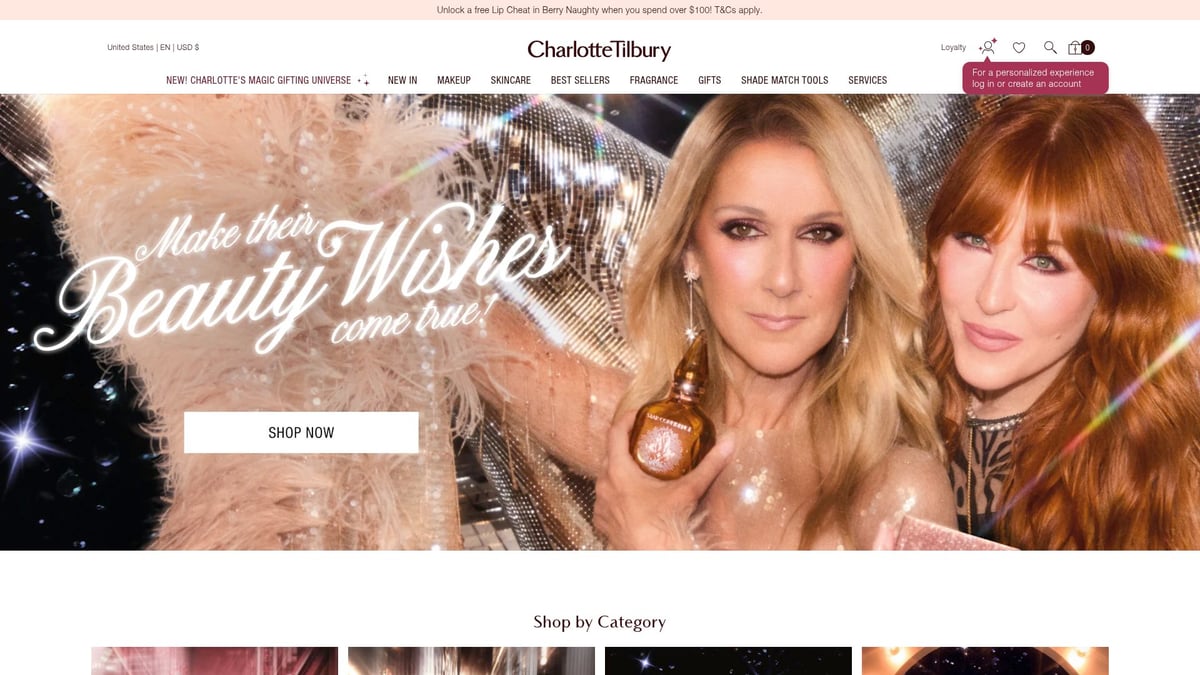
The brand delivers red carpet-worthy results at home, offering universally flattering shades and iconic glow products. Celebrity endorsements and glamorous branding contribute to Charlotte Tilbury’s widespread acclaim.
Ideal for special occasions, bridal looks, and everyday glam, Charlotte Tilbury’s offerings are versatile and impactful. The brand is a favorite among professionals and luxury shoppers in the world of beauty products brands.
Ideal for:
- Makeup aficionados and professionals
- Special events and bridal makeup
Pros:
- High-impact results
- Elegant packaging
Cons:
- Higher price point
- Luminous formulas may not suit oily skin types
Charlotte Tilbury continues to raise the bar for beauty products brands seeking prestige and performance.
The Ordinary
The Ordinary has disrupted the landscape of beauty products brands with its affordable pricing and clinical, single-ingredient formulations. Most products range from $6 to $15, making advanced skincare accessible to all.
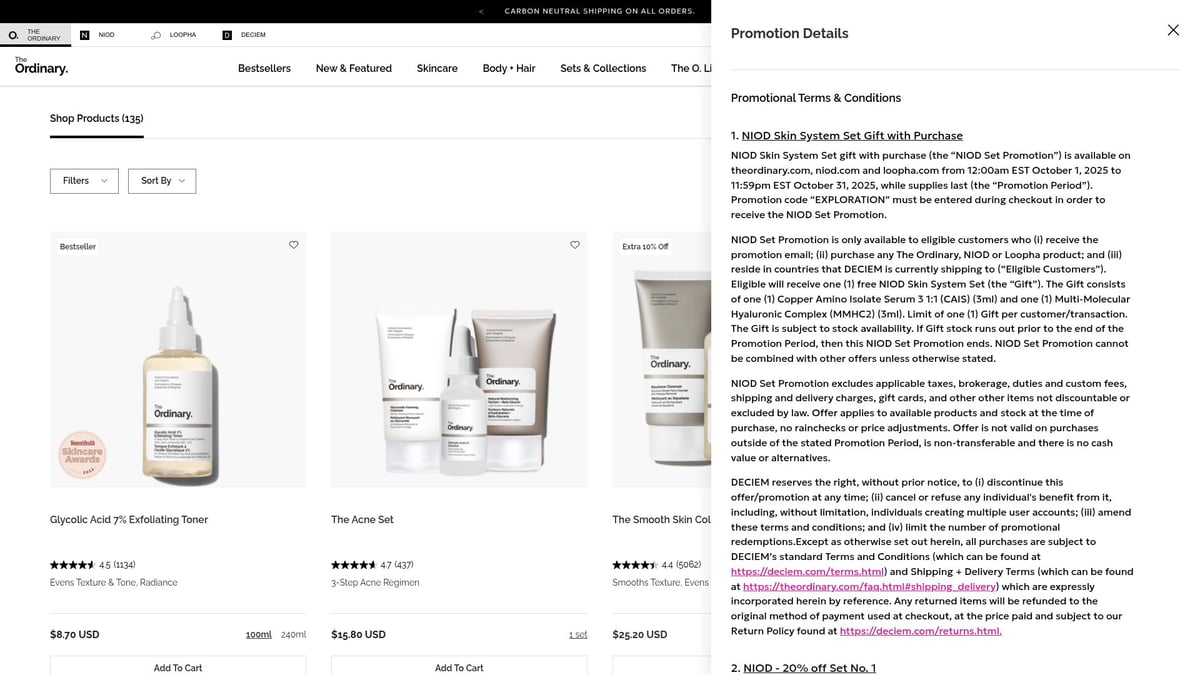
Transparency is at the heart of The Ordinary’s philosophy, with clear ingredient percentages and educational resources for consumers. The minimalist approach allows users to customize routines and target specific concerns.
The brand is ideal for ingredient-focused consumers, students, and those looking to experiment with actives. However, the simplicity can be overwhelming for beginners.
Ideal for:
- Targeted skincare treatments
- Building routines from scratch
Pros:
- Budget-friendly
- Effective actives
Cons:
- Can be confusing for new users
- Basic textures
The Ordinary stands out among beauty products brands for making high-quality skincare affordable and transparent.
Biossance
Biossance is a biotechnology-driven name among beauty products brands, known for its squalane-based, EWG-verified formulations. Serums are priced between $28 and $72, reflecting the brand’s commitment to clean science.
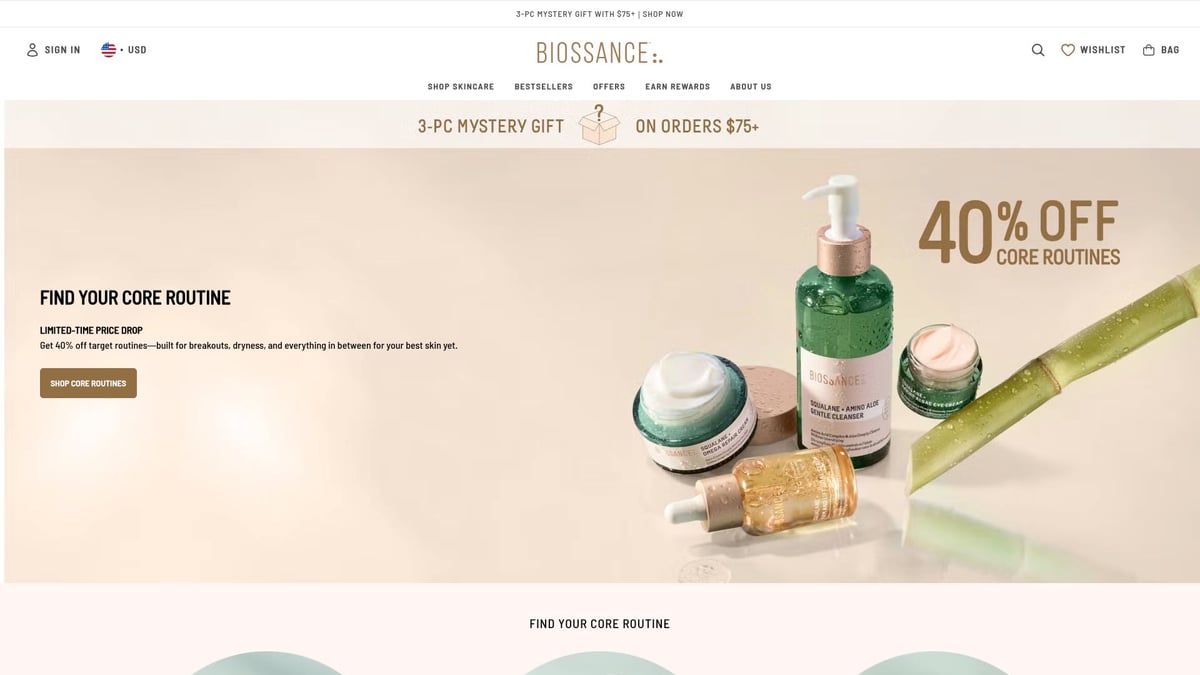
Biossance’s sugarcane-derived squalane provides deep hydration and supports the skin barrier. The brand holds sustainability certifications, is vegan, dermatologist-tested, and carbon-neutral.
Targeting eco-conscious and sensitive skin consumers, Biossance is a prime example of how biotech is shaping the next generation of beauty products brands.
Ideal for:
- Moisturizing and anti-aging routines
- Sensitive skin care
Pros:
- Vegan and carbon-neutral
- Clinical studies supporting efficacy
Cons:
- Higher price point
- Limited selection of color cosmetics
Biossance merges innovation and sustainability, setting a benchmark for science-driven beauty products brands.
Rare Beauty
Rare Beauty brings a fresh perspective to beauty products brands by prioritizing self-acceptance, mental health advocacy, and easy-to-use makeup. Pricing is mid-range, with foundations at $29 and blushes at $23.
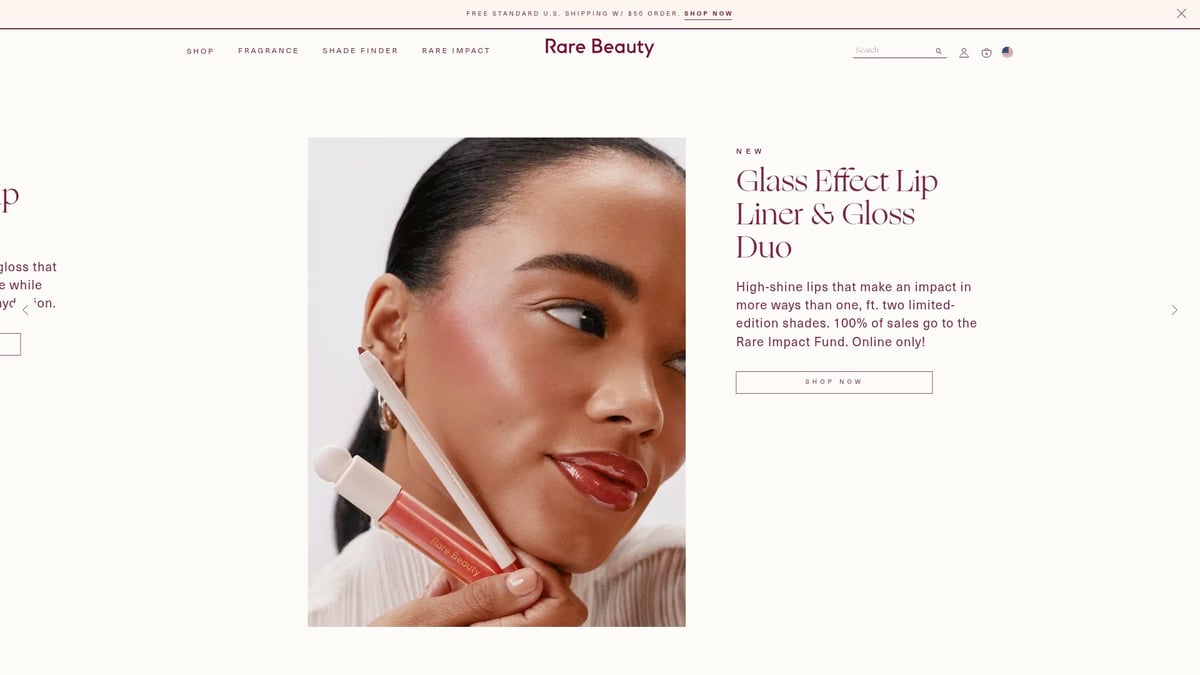
Founded by Selena Gomez, Rare Beauty offers lightweight, buildable products with an inclusive shade range. The brand’s philanthropic initiatives and focus on natural finishes resonate with young adults and makeup beginners.
Rare Beauty’s minimalist aesthetic and user-friendly design make it accessible, though availability may be limited in some countries.
Ideal for:
- Everyday makeup routines
- Quick, natural looks
Pros:
- Cruelty-free
- Charitable giving
Cons:
- Limited international availability
- Minimalist packaging may not appeal to all
Rare Beauty is redefining what it means to be a modern, values-driven beauty products brand.
How to Choose the Right Beauty Brand for Your Needs
Selecting the best beauty products brands can feel overwhelming given the sheer variety available in 2025. To simplify your search, start by focusing on your unique needs and preferences. Personalized selection not only ensures better results but also supports your journey toward healthier skin and conscious consumption.
Understanding Your Skin and Goals
Begin by assessing your skin type, main concerns, and the results you want to achieve. Are you focused on hydration, brightening, anti-aging, or barrier repair? Knowing this will help you filter beauty products brands that align with your goals.
For example, those with sensitive or reactive skin may gravitate toward science-led brands like The Ordinary, which offer clear ingredient lists and targeted actives. Conversely, if you enjoy indulgent textures and playful routines, brands like Glow Recipe can deliver a sensorial experience.
| Brand | Approach | Best For | Price Range |
|---|---|---|---|
| The Ordinary | Minimalist | Ingredient purists | $6–$15 |
| Glow Recipe | Sensorial | Trend-driven users | $25–$50 |
Understanding these differences will help you select beauty products brands that suit your personal style and needs.
Evaluating Brand Values and Ingredients
Transparency is crucial in today’s beauty industry. Investigate whether brands clearly disclose their ingredients and explain their formulation philosophy. Look for evidence of clinical testing, certifications, and ethical sourcing.
Many beauty products brands now prioritize sustainability, offering recyclable or refillable packaging and cruelty-free practices. If ingredient safety and effectiveness matter to you, consider reading about quality in cosmetic formulations to better interpret product labels.
According to Mintel, 73% of consumers research brand values before making a purchase, highlighting the importance of authenticity and trust.
Practical Tips for Brand Selection
When narrowing down beauty products brands, balance price and accessibility with performance and reputation. Read reviews, check for third-party awards, and seek out brands that align with your ethical priorities.
- Start with sample sizes or travel kits to test compatibility.
- Compare ingredient transparency across brands.
- Research if the brand supports causes you care about.
- Stay informed about trends shaping the beauty industry in 2025 and beyond for future-proof choices.
Thoughtful selection ensures your investment in beauty products brands pays off in both results and peace of mind.
Future Trends: What to Watch for in Beauty Brands Beyond 2025
The future of beauty products brands promises to be dynamic and transformative. As innovation accelerates, both established and new players are reimagining what is possible. Consumers can expect a wave of futuristic offerings that blend technology, sustainability, and wellness in ways never seen before.
Emerging Technologies and Personalization
Beauty products brands are rapidly adopting advanced technologies to enhance personalization and user experience. Artificial intelligence is now analyzing skin conditions in real time, while machine learning tailors product recommendations to individual needs. Augmented reality tools allow shoppers to virtually try on makeup or skincare, bridging the gap between digital and in-store experiences.
E-commerce continues to revolutionize discovery and purchasing, with beauty industry e-commerce experiencing 35% annual growth. Brands are investing in digital consultations, AI-powered chatbots, and interactive apps to meet consumers where they are. As a result, beauty products brands are becoming more accessible and adaptive than ever.
Sustainability, Biotech, and Packaging Innovation
Sustainability remains a driving force shaping the next era of beauty products brands. Waterless formulas and solid concentrates are gaining traction, helping to reduce waste and conserve resources. Biotech-derived ingredients, such as lab-grown actives and fermentation-based compounds, offer potent results with a lower environmental footprint.
Refillable and zero-waste packaging is shifting from a niche innovation to a mainstream expectation. More brands are prioritizing circular design, with consumers seeking options that align with their values. According to global beauty industry projections, sustainability and technological advancements will remain pivotal for growth well into 2030.
Table: Key Future Trends in Beauty Products Brands
| Trend | Impact |
|---|---|
| AI-powered analysis | Personalized routines, better results |
| AR try-on tools | Enhanced digital shopping experience |
| Waterless formulas | Reduced waste, eco-friendly |
| Biotech ingredients | Potent, ethical, science-driven |
| Refillable packaging | Lower environmental impact, consumer loyalty |
| Wellness supplements | Holistic beauty, inside-out approach |
Holistic Wellness and Beauty-From-Within
A growing number of beauty products brands are expanding their focus beyond topical solutions. Holistic wellness and beauty-from-within supplements are now integral to many routines. Consumers are seeking products that support both appearance and overall well-being, blending skincare with nutrition and mindfulness.
Brands are piloting digital skin consultations and integrating wellness data to offer tailored regimens. This shift illustrates how beauty products brands are evolving into lifestyle partners, not just product providers.
Looking ahead, the evolution of beauty products brands will be shaped by consumer-driven innovation, transparency, and a commitment to both performance and purpose. As technology and values intersect, the industry is set for unprecedented growth and transformation.
As you explore these nine forward-thinking beauty brands shaping 2025, you might be inspired to take your own ideas to the next level—whether you’re dreaming of launching a product or reimagining your existing line. At The INCI Lab, I’ve seen how the right blend of innovation, sustainability, and expert support can help your vision stand out in a crowded market. If you’re ready to turn inspiration into action and want comprehensive guidance from concept through production, let’s take the first step together—Start Your Product Journey.
